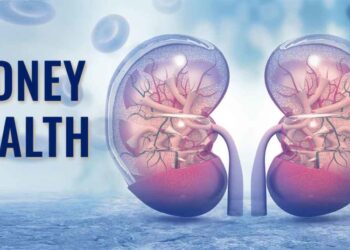Brain Attack: A stroke, which occurs when blood flow to a section of your brain is disrupted, is the brain’s equivalent of a heart attack. This can happen if your brain is bleeding or if your blood arteries are clogged. Strokes are a significant medical emergency that must be addressed as soon as possible to prevent death or serious injury. Stroke is one of the leading causes of death worldwide, according to the World Health Organization (WHO). Strokes may kill more than 10 million people per year by 2050, despite the fact that they are a condition that is generally treatable and preventable.
Who Are at Risk of Stroke?
Everyone, including children and adults, is at risk of having a stroke, while some are more vulnerable than others. Strokes are more common in old age (about two-thirds occur in persons over the age of 65).
Other medical conditions that increase the risk of stroke include high blood pressure (hypertension), high cholesterol (hyperlipidemia), Type 2 diabetes, and a history of stroke, heart attack, or irregular heart rhythms such as atrial fibrillation.
How to Reduce The Risk of Stroke?
If you suspect that you or someone you’re with is having a stroke, keep a close eye on when the symptoms begin. Certain therapy options function best when delivered promptly after a stroke begins.
Healthy Eating: By eating nutritious meals and snacks, you can lower your risk of stroke. Make sure to eat plenty of fresh fruits and vegetables.
Reduce High Blood Pressure: Eating high-fiber, low-cholesterol, trans-fat, and saturated-fat meals can help prevent high cholesterol. Reduced sodium (salt) consumption can help lower blood pressure. Having high cholesterol and blood pressure increases your chances of having a stroke.
Weight Loss: Obesity or being overweight increases your risk of stroke. Doctors routinely calculate your body mass index (BMI) to determine if your weight is within a healthy level.
Stay Active: Maintaining a healthy weight, as well as decreasing your cholesterol and blood pressure, are all advantages of physical activity. For adults, the surgeon general recommends 2 hours and 30 minutes of moderate-intensity aerobic exercise.
STOP SMOKING: Smoking dramatically increases your chances of having a stroke. If you haven’t already, quit smoking. If you smoke, quitting will lower your risk of having a stroke. Your doctor may make suggestions to help you quit smoking.
Limit Alcohol: Binge drinking raises the risk of bleeding. Limit your daily alcohol consumption to one drink for women and two drinks for males. Red wine is your best bet because it contains resveratrol, which has been linked to heart and brain health advantages.
Reduce Bad Cholesterol: High levels of ‘bad’ LDL cholesterol and low levels of ‘good’ HDL cholesterol cause plaque to build up in the arteries, causing occlusion and heart disease and stroke.
Diabetes Control: High blood sugar damages the brain’s blood vessels, making it easier for clots to form. Diabetes makes people 1.5 times more likely to suffer a stroke than those who do not. Work with a doctor to help you control your blood sugar, work with your doctor.
A stroke is a medical emergency, therefore getting help quickly is essential. Early intervention can lessen problems and brain damage.
Source:In







 Finance
Finance







